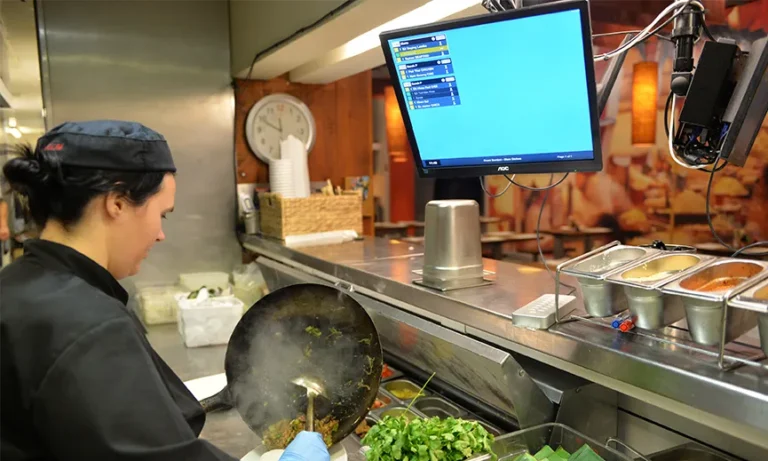Increase customer retention by making it personal

In today’s competitive market where customers have so much choice, hospitality operators need to be smarter and find cost-effective ways of attracting – and retaining – customers.
With more choice than ever on the high street and online, hospitality businesses are finding it increasingly challenging to attract and retain customers. The home delivery market in particular has grown an astonishing 73% over the last decade, driven by the Netflix generation who want instant access and on-demand service, and is now worth a whopping £4.2 billion.
Advances in technology are providing new ways to address these challenges however, allowing businesses to become smarter and more cost-effective. Here are six ways that technology can help you not only solve customer-facing issues, but also establish an advantage over your less digitally-aware competitors.
1. The booking experience
Flexible working and 24×7 lifestyles means that your customers are no longer bound by the 9-to-5 workday routine. Even the out-of-hours operations of the hospitality industry are insufficient to keep up with consumer demand.
Customers like to book on the go, make a spontaneous reservation while they’re out and about. Crucially, they expect real-time availability to get the assurance of a confirmed booking.
By deploying an online booking system that shows real-time availability, your business can better meet the 24×7 expectations of customers. Any venues that can’t offer a confirmed booking will leave would-be customers disappointed.
There are a number of booking systems available to meet customers’ preferences, such as Bookings by Phone powered by IOVOX and intelligent chatbots. Billed under a flat monthly fee with no commission to pay for each booking you receive, these platforms offer exceptional value for money.
An online booking system also allows your business to begin building a GDPR-compliant customer loyalty database. This information can then be used to better understand clients, and to tailor offers and promotions to their preferences.
2. Pay and go/payment convenience
Time and convenience are powerful motivators for customers. Any business that can create easy time savings is on to a winner, particularly in relation to leisure activities.
Order & Pay gives customers greater control of their own experience. A specialised smartphone app allows customers to order food and drink, and the order is sent direct to the kitchen. The app also allows them to pay for their meal upfront.
Importantly, this entire process is completely frictionless – no more waiting at bars or trying to catch the server’s attention when they want to pay. This convenience is particularly important for busy venues and a range of different customers, such as those who are less mobile and customers with children.
By empowering the customer to take care of the “administrative” tasks, your front-of-house staff are able to devote more time and attention to making their visit more enjoyable and personable. And don’t underestimate your customers’ technical ability – 69% have already placed food orders using mobile devices.
3. Customer spend habits
Understanding client spending habits is crucial to building loyalty. Your EPoS system allows you to review and analyse a customer’s entire purchase history and build up a better understanding of them as an individual.
This profile is invaluable, giving you actionable insights that allow you to better serve each customer. Putting that information to work allows you to create specific, relevant communications and deals that speak directly to the customer’s preferences, helping to tempt them back. For example, if a customer always drinks the same red wine when she’s in your venue but hasn’t visited for over a month, an email offering a free glass of that wine when she next visits is more likely to encourage her to make a booking than a generic ‘10% discount’ email.
Do not underestimate the importance of personalisation either. Seventy-two percent of consumers say they expect companies to understand their unique needs and expectations. What happens if you don’t personalise? 66% say they’re likely to switch brands if they feel they are not being treated as an individual.
4. Giving customers a voice
Data and analytics are incredibly useful for understanding your customers – but there will still be gaps, particularly when you’re dealing with first-time visitors. The best way to capture information about their experience is simply to ask them.
Feed it Back provides a quick and easy way to find out what customers think about their experience in your establishment. Thanks to the system’s integration with EPoS, their feedback is then combined with their order data to give a complete picture of what they ordered and how much they spent.
Feedback is crucial to identifying areas of potential improvement, prioritised by the people who matter the most – your customers. The streamlined survey process takes no more than a few seconds, but it shows that your business really does care about what its customers think – another key in helping to build brand loyalty.
5. Fostering customer loyalty
We’ve touched on it several times already, but building customer loyalty should be the ultimate goal of any technology project. In-venue technology needs to be put to use, rewarding your customers for their loyalty.
Everyone loves a freebie, but those that are tailored to their individual tastes and preferences are without doubt more successful. Your EPoS data allows you to identify their preferred food and drink – so why not offer them a discount on their favourite meal next visit.
Studies show that positive emotions toward a brand have far greater influence on consumer loyalty than trust and other judgments which are based on a brand’s attributes. If you can convince clients to like you, they’re much more likely to come back again.
6. Increasing operational simplicity
Technology has always been intended to simplify routine tasks, and hospitality systems are no different. Order & Pay may help to streamline the purchasing process for your customers, but there are efficiencies for your business too. Applied correctly, technology allows you to do more with fewer resources.
That means independent venues can achieve more and operate like big brands, while multi-venue operators can dedicate more staff to improving the customer experience. In both scenarios, the quality of service provided to customers is the key end result.
It’s not just front-of-house who benefit though. Intelligent technology can sift through the data and feedback collected automatically. Segmentation of marketing campaigns can be automated, allowing your marketing and sales teams to focus on the content of future campaigns; marketing complexity with operational simplicity.
By offering a personalised experience that delights your customers at every step of their journey, you’re sure to be more successful and more profitable. And technology has a key role to play in achieving those goals.
Takeaways
- Ensure customers can make a confirmed booking with real-time availability 24x7x365
- Order & Pay functionality creates a seamless, more convenient experience for customers
- Observing spending habits helps you offer rewards and benefits that match their preferences
- Collecting feedback helps improve your offering – and shows customers you care
- Identifying and more importantly rewarding customer loyalty is crucial to bringing them back
- Streamlining in-store operations allows your team to do more with less


